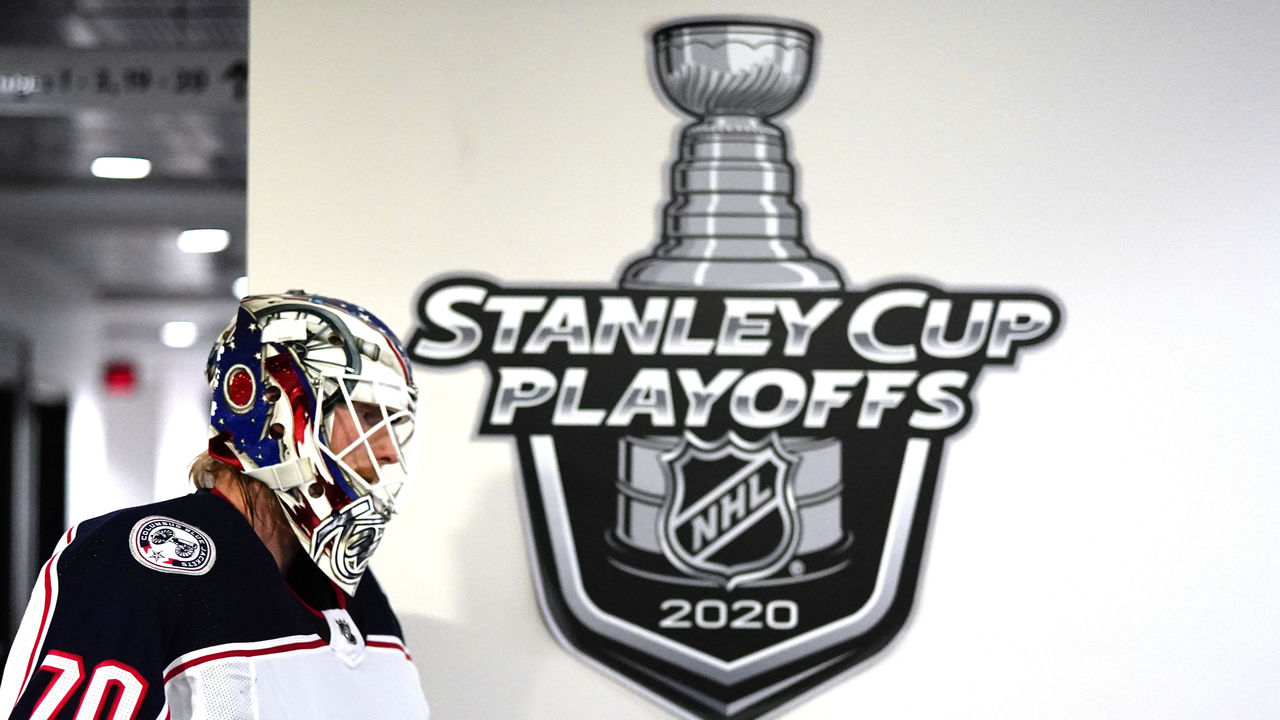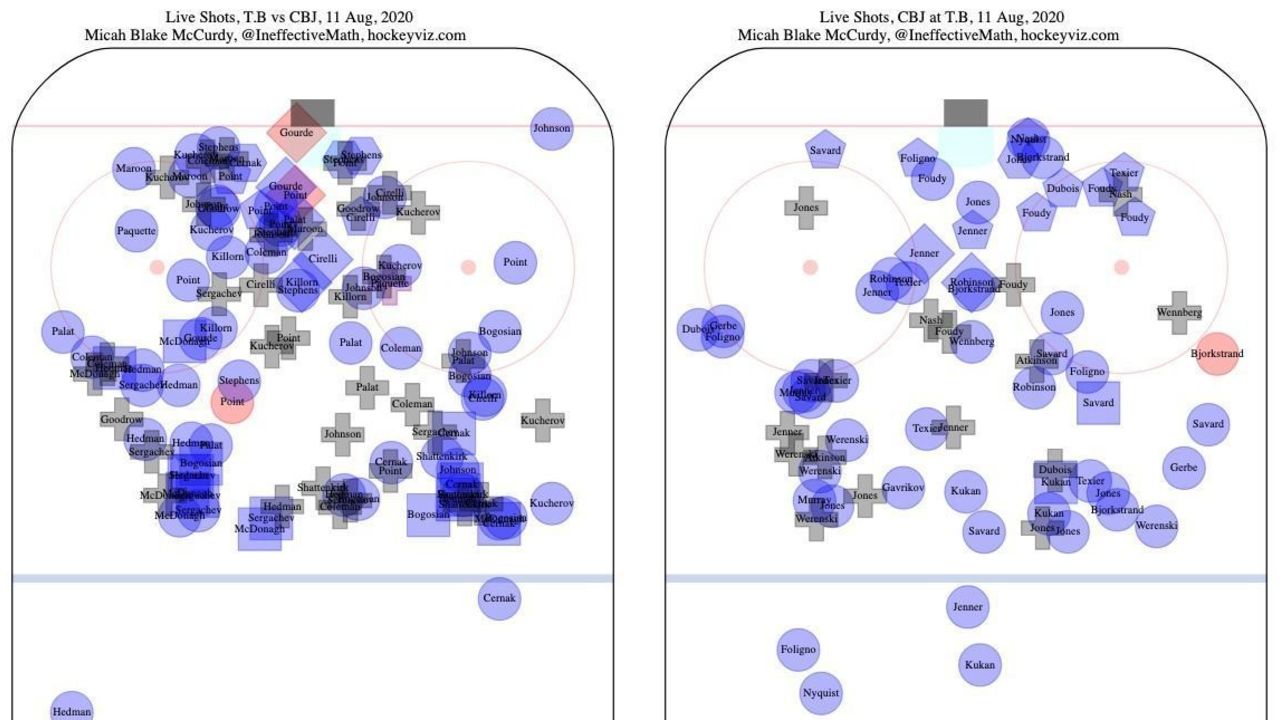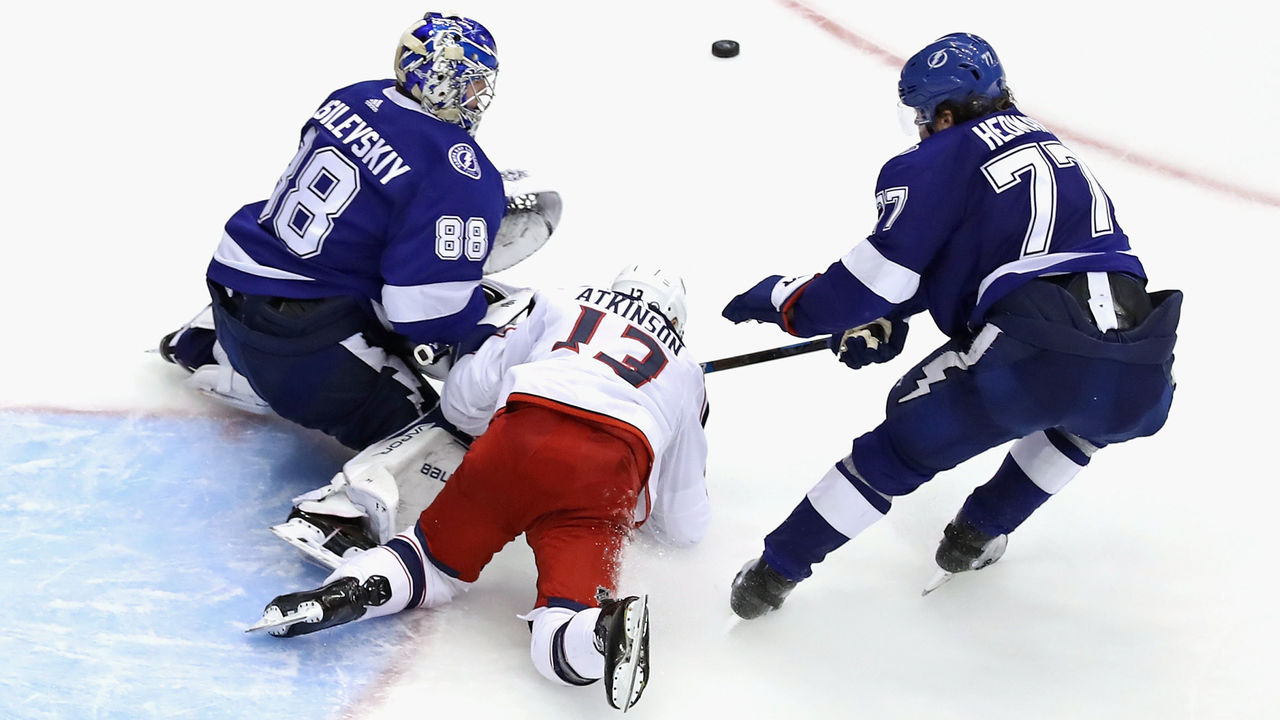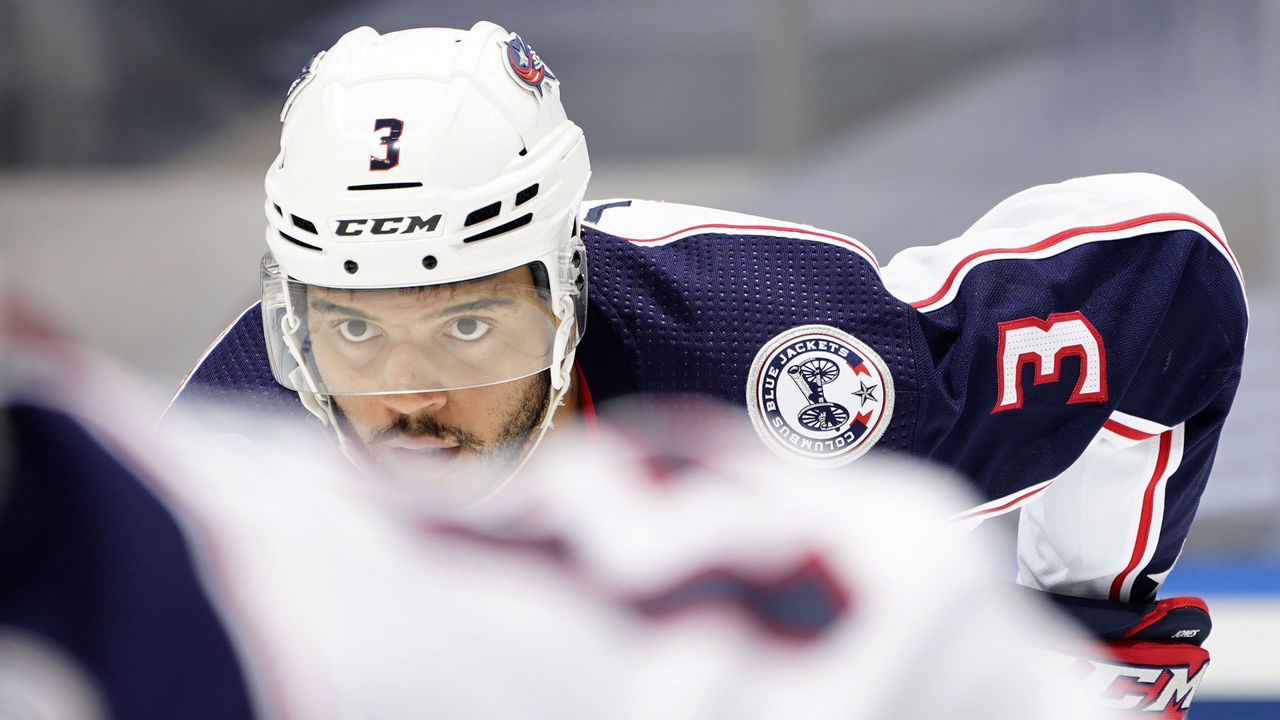Tag Archives: Hockey
Caps’ Reirden condemns Lee’s hit on Backstrom: ‘It was predatory’
Washington Capitals head coach Todd Reirden called out New York Islanders captain Anders Lee for his hit that knocked Capitals forward Nicklas Backstrom out of Game 1 on Wednesday.
"It was a late hit on a player who wasn't expecting it," Reirden said, according to The Washington Post's Samantha Pell. "It was predatory."
Lee caught Backstrom with a hard hit just minutes into the game and was immediately met by Capitals rearguard John Carlson. Lee was handed a minor for interference, while he and Carlson were both assessed roughing penalties in addition.
Anders Lee getting himself into the series early. Drops Nick Backstrom. pic.twitter.com/nrKPM1PmeS
— Rob Taub (@RTaub_) August 12, 2020
Carlson also voiced his displeasure with the hit following the contest: “It looked real dirty to me," he said, per Pell.
Islanders bench boss Barry Trotz, who coached Backstrom and the Capitals from 2014-18, came to the defense of his captain.
"Anders is making a hockey play," he said, per The Athletic's Arthur Staple. "I don't know if Nick was ready or not. Anders is a strong guy, the hit was made and they responded, he and Wilson fought and that was probably the end of it. We'll see."
The Islanders netted four unanswered goals - including three in the third period - to win the series opener 4-2.
Copyright © 2020 Score Media Ventures Inc. All rights reserved. Certain content reproduced under license.
Brind’Amour fined $25K after calling NHL ‘a joke’ for Game 1 goal review
Carolina Hurricanes head coach Rod Brind'Amour was both miffed and bewildered about how the officials handled the Boston Bruins' second goal in Boston's double-overtime victory over Carolina in the opener of the first-round playoff series Wednesday.
"This is why the league's a joke, in my opinion, on these things," Brind'Amour told The News and Observer's Luke DeCock. "That one is a crime scene."
Charlie Coyle gave the Bruins a 2-1 lead less than five minutes into the second period. However, earlier in the play, Boston's Nick Ritchie appeared to hit the puck out of midair with his glove. Bruins forward Anders Bjork then dislodged it from under Hurricanes goaltender Petr Mrazek's glove, and Coyle deposited the puck into a virtually open net.
After review, we've got...a GOOD goal! 🚨#NHLonSN pic.twitter.com/5b7HJT1Slf
— Sportsnet (@Sportsnet) August 12, 2020
The Hurricanes challenged the play, citing Ritchie's hand pass, according to DeCock.
Referee Chris Lee said Mrazek had possession, thereby negating the hand pass and serving as an admission that the on-ice crew initially incorrectly deemed it a goal after not blowing the whistle when the netminder closed his glove on the puck.
However, Brind'Amour said postgame that neither Lee nor fellow referee Francis Charron would elaborate about the call on the ice, making the bench boss unsure about which aspect of the play to challenge.
"They came to me, and I said, "If he has possession of it then it's goalie interference. If he doesn't have possession then it's a hand pass," Brind'Amour said. "It's one of the two. I don't know what you're calling on the ice. All he has to do is tell me. 'We're calling it non-possession (by Mrazek),' then we're challenging a glove-hand pass. If it's possession, then goaltender interference. I said, 'Tell me the call on the ice.' They wouldn't do it when I (said), 'What is the call?' So, I had to flip a coin."
The head coach continued: "I said, 'What was the call on the ice?' and he said, 'You've got to call one or the other.' It should be so easy. If they said the goalie had it, then it's an easy call. They wouldn't tell you. It makes no sense. I know we weren't the better team, but if that goal doesn't go in, do we win that game? I don't know."
The NHL later fined Brind'Amour $25,000 for his remarks. It also issued a conditional fine for the same amount, which the league will collect in addition to future discipline if it deems him to display "similar inappropriate behavior" through Aug. 12, 2021.
The league's official stance was that the netminder had possession.
"Hurricanes goaltender Petr Mrazek controlled the puck prior to Charlie Coyle's goal, which nullified the potential hand pass," it said in its explanation.
Officials assessed Carolina with a minor penalty for the failed review but Hurricanes winger Brock McGinn scored 21 seconds later to tie the game.
Bruins star Patrice Bergeron netted the winner 73 seconds into double overtime.
Copyright © 2020 Score Media Ventures Inc. All rights reserved. Certain content reproduced under license.
Capitals’ Backstrom forced out of Game 1 after hit by Islanders’ Lee
Nicklas Backstrom's day came to a premature end several shifts after New York Islanders winger Anders Lee caught the Washington Capitals center with a hard hit Wednesday.
Lee hit Backstrom early in Game 1 of the first-round playoff series, after which Washington blue-liner John Carlson immediately came to his teammate's defense.
Anders Lee getting himself into the series early. Drops Nick Backstrom. pic.twitter.com/nrKPM1PmeS
— Rob Taub (@RTaub_) August 12, 2020
The officials assessed Lee an interference minor for the hit and also gave both Lee and Carlson roughing penalties.
Later in the period, Capitals agitator Tom Wilson dropped the gloves with Lee.
Tom Wilson lays into Anders Lee for his hit on Nicklas Backstrom pic.twitter.com/DSTmBkVfd0
— Brady Trettenero (@BradyTrett) August 12, 2020
Backstrom initially played through the hit, remaining on the ice for nearly a minute of game time afterward and then logging five more first-period shifts.
However, he didn't emerge for the start of the second frame, and the Capitals later ruled him out for the rest of the contest.
Backstrom ranked second in assists among Washington skaters (42) and third in points (54) during the regular season.
Copyright © 2020 Score Media Ventures Inc. All rights reserved. Certain content reproduced under license.
Capitals get Carlson back for Game 1 vs. Islanders
The Washington Capitals have their Norris Trophy finalist in the lineup once again.
John Carlson was deemed good to go for Game 1 of the Capitals' opening-round playoff series against the New York Islanders, his club confirmed prior to puck drop.
The 30-year-old missed all three of the Capitals' round-robin games after suffering an injury late in an exhibition win over the Carolina Hurricanes on July 29.
He led all NHL blue-liners with 75 points during the regular season and topped all Washington skaters in ice time, logging 24:38 per game.
Copyright © 2020 Score Media Ventures Inc. All rights reserved. Certain content reproduced under license.
Report: Lafreniere won’t report to junior camp
Presumptive 2020 first overall pick Alexis Lafreniere won't report to camp with the QMJHL's Rimouski Oceanic as he intends to train at home and report to his NHL team when the time comes, TSN's Bob McKenzie reports.
Lafreniere won't attempt to play in Europe, either, McKenzie adds.
The QMJHL canceled the remainder of its 2019-20 season due to the COVID-19 pandemic and is targeting a return in October. European leagues are also set on returning sooner than the NHL, which has tentatively scheduled its 2020-21 campaign to begin in December.
If the NHL season doesn't begin by early 2021, Lafreniere and his NHL club will weigh available options, according to McKenzie.
The New York Rangers won the draft lottery Monday and are likely to select the Quebec-born phenom.
Lafreniere enjoyed an extraordinary draft year, becoming the first to win CHL Player of the Year in back-to-back seasons since Sidney Crosby. Lafreniere posted a whopping 112 points in 52 games for Rimouski and added 10 points in five contests at the world juniors en route to a gold medal and tournament MVP.
Copyright © 2020 Score Media Ventures Inc. All rights reserved. Certain content reproduced under license.
NHL playoff picks: Best bets for Wednesday
Find line reports, best bets, and subscribe to push notifications in the Betting News section.
Dillon Dube went full Theoren Fleury and then the Tampa Bay Lightning needed about 12 hours to win Game 1, so we didn't even get to the other game in the East between the Boston Bruins and Carolina Hurricanes - and we're taking the Bruins in that one.
Round 1 had an eventful start - to say the least - and thanks to the overtime delay, we get a bonus game on Wednesday.
In addition to our bet on the Bruins, here's what else we've got for this slate.
New York Islanders (+110) @ Washington Capitals (-140)
This matchup is a tough draw for the Capitals, who do some of their best work on the rush. They will be vulnerable against an Islanders team that excels at slowing attacks similar to Washington's. New York plays a gritty brand of hockey and is well-equipped to frustrate the Caps.
Offensively the Islanders aren't designed to light the lamp, but they have many capable scorers up and down their roster. Their scoring-by-committee approach gives reason to believe they will find success on the attack in this series, given Washington's defensive deficiencies and question marks in goal.
Regardless of how the series as a whole plays out, Barry Trotz is a man I'm comfortable backing in Game 1. Not only will he have his squad ready to run through a brick wall, but he'll have devised a tidy game plan to frustrate the Capitals' attack and exploit their defensive weaknesses. Plus, Washington playing without Lars Eller and quite possibly Norris candidate John Carlson only adds fuel to the fire. It's the perfect storm for the Isles, who steal Game 1 in what should be a very tight series.
Pick: Islanders (+110)
Vancouver Canucks (+125) @ St. Louis Blues (-160)
The Canucks' reward for beating the Wild is a date with the defending Stanley Cup champions. They played a strong game, which has started to turn a few doubters - including me. Most important, though, was Jacob Markstrom's form. The 30-year-old was stealing games for the Canucks, and that's what they'll need from their netminder if they want to beat the battle-tested Blues.
St. Louis was particularly poor in the qualifying round, but I'm putting little stock into that display. Much like the Bruins, this team is more than capable of turning it on when games really matter. The Blues are very well-coached and play a style conducive to playoff hockey - designed to frustrate and suffocate young teams like the Canucks. Even with Vancouver's star power up front, chances will be tough to come by.
Between a pair of teams backed by excellent goaltenders, the first to three goals will win what should be a hard-fought Game 1.
Pick: Under 5.5 (-130)
(Odds source: theScore Bet)
Alex Moretto is a sports betting writer for theScore. A journalism graduate from Guelph-Humber University, he has worked in sports media for over a decade. He will bet on anything from the Super Bowl to amateur soccer, is too impatient for futures, and will never trust a kicker. Find him on Twitter @alexjmoretto.
Copyright © 2020 Score Media Ventures Inc. All rights reserved. Certain content reproduced under license.
Matthews: Leafs’ failure to advance for 4th straight year is ’embarrassing’
For the fourth consecutive year of the Auston Matthews era, the Toronto Maple Leafs failed to win a round in the postseason, and the feeling isn't getting easier to bear for the face of the franchise.
"Having a good regular season isn't cutting it anymore," Matthews said in his season-ending press conference, per the Toronto Sun's Terry Koshan. "We have to figure out the playoffs. Four years in a row is a little bit embarrassing."
The Leafs entered this year's expanded playoffs as the eighth seed in the Eastern Conference after an up-and-down campaign in which the club struggled to find consistency after a head coaching change in November. Toronto was then eliminated from the postseason in the qualifying round Sunday after a shutout loss to the Columbus Blue Jackets in Game 5.
In Matthews' rookie year, the Leafs challenged the Presidents' Trophy-winning Washington Capitals in a hard-fought six-game series that featured five overtimes. Since then, the Leafs have been considered contenders in the Eastern Conference, but they subsequently flamed out in seven games to the Boston Bruins in 2018 and 2019.
While clearly frustrated, Matthews believes he and his teammates have what it takes to go on a deep playoff run.
"This core believes we're right there," he said, per TSN's Kristen Shilton. "We don't really care what other people think, or how far away other people think we are. ... We're going to power through this adversity and we'll break through eventually."
Veteran defenseman Jake Muzzin, who won a Stanley Cup with the Los Angeles Kings in 2014, believes the same.
"The will to win has to burn a little hotter than the other stuff. Once we find that, we'll be dangerous," he said, according to The Athletic's Joshua Kloke.
The Leafs' postseason frustrations extend well beyond their current core of stars, as the club hasn't won a playoff series since 2004.
Copyright © 2020 Score Media Ventures Inc. All rights reserved. Certain content reproduced under license.
5 key stats from Tampa Bay’s 5OT victory over Columbus
The Lightning and Blue Jackets played the fourth-longest game in NHL playoff history Tuesday. These five numbers shaped Tampa Bay's 3-2 victory, which ended at 10:27 of the fifth overtime.
2 - Offsides Tampa avoided before the winning goal
So much about this historic Game 1 pops off the stat sheet. The end is as good a place as any to start breaking it down, with a subtle sequence that would have gone unnoticed had Brayden Point not scored later in the play.
Tied 2-2 midway through overtime No. 5 - as the game had been since the first minute of the third period - Point and Blue Jackets defenseman David Savard combined to push the puck to the point off a contested faceoff in Columbus' end. The disc skittered past Tampa's Kevin Shattenkirk, but he reached back to save it on the blue line. Off Shattenkirk's dump-in, Point retrieved possession behind the net, looped back under dogged pressure from Riley Nash, and again kept the puck in the offensive zone by the slimmest of margins.
We were this close to having that game continue after an offside review pic.twitter.com/JgV7HPcsgA
— Dimitri Filipovic (@DimFilipovic) August 12, 2020
That Joonas Korpisalo and Andrei Vasilevskiy had held the fort so long seemed to signal that the eventual tiebreaking goal would inevitably be preceded by a mistake. That's often how things work early in overtime, let alone after more than another game's worth of action. Dean Kukan's puck-over-glass penalty was tailor-made for the dishonor, but the Jackets bailed him out without allowing a shot on the ensuing penalty kill.
Precisely 24 seconds after Kukan left the box, and right after Tampa Bay narrowly saved the two offsides, the result was settled, Point's winner having instead been set up by slick stickwork in the face of exhaustion.
146 - Korpisalo and Vasilevskiy's combined saves
For 33 years, retired netminder Kelly Hrudey had held the NHL record for saves in a game. On April 18, 1987, his 73 stops on 75 shots faced propelled the Islanders to a 3-2 win over the Capitals in the Easter Epic - a Game 7 slog decided in the fourth overtime by Pat Lafontaine's spinning slapper.
Hrudey was finally outdone Tuesday evening. The Jackets' Korpisalo made 85 saves, while Vasilevskiy had 61.

Yanni Gourde's goal that tied the game early in the third period was Tampa's 29th shot on target, meaning Korpisalo turned aside a whopping 58 consecutive attempts before Point's screened wrister from the high slot eluded him. His Lightning counterpart responded with 47 straight saves from Oliver Bjorkstrand's second-period goal onward.
Accounting for this clash of attrition and the play-in round, it's safe to say no team's postseason has thus far been wilder than that of the Jackets. After succumbing to a three-goal collapse late in Game 4 against Toronto, they secured redemption in Game 5 thanks to Korpisalo's gutsy 33-save shutout.
Gutsy doesn't begin to describe what he just did in defeat. (Valiant? Herculean? I don't know if any adjective suffices.) The conclusion: Hockey isn't fair, at least not to opposing goalies simultaneously. Now, Columbus has to reset and bounce back from a loss that was somehow less fathomable than their last one.
173-100 - Lightning's shot-attempt edge at even strength
The above figures are courtesy of Natural Stat Trick, and the below chart is from HockeyViz.com.

Even in a game wherein the less dangerous team cracked triple digits in Corsi For, the visual lays bare just how relentless Tampa was offensively. The club, whose 243 goals (3.47 per game) topped the NHL this season, very much looked like a juggernaut. Eighty of those 173 shot attempts rated as legit scoring chances and 22 were considered high danger.
Every Lightning skater posted positive possession metrics in Game 1, but particular praise goes to Victor Hedman, who pelted a game-high nine shots at Korpisalo and helped Tampa generate 73.27% of shot attempts when he was on the ice at even strength (74-27). The perennial Norris Trophy candidate almost didn't play after twisting his ankle in Tampa's round-robin finale. That he shouldered 57:38 in ice time a mere three days later is astonishing even before you account for his dominance.
On the opposite blue line, Savard and defense partner Vladislav Gavrikov struggled in extended duty against Tampa's top line of Point, Nikita Kucherov, and Ondrej Palat. The Jackets controlled no higher than 22% of attempted shots when either member of their No. 2 pair hit the ice at evens. Both were out there for two goals against, and Gavrikov was stung by Kucherov's errant slapper on the bounce that led to Point's winner.

2:39 - Time that Dubois scored the game's 1st goal
A full six hours elapsed in the world between Game 1's opening marker and Point's decider in the fifth OT. Understandably, so many later events overshadowed Pierre-Luc Dubois' handiwork on the Jackets' first power play, but even with his squad down 1-0 in the series, that he got on the board in this game feels significant.
Entering Columbus' play-in encounter with Toronto, four Maple Leafs (Auston Matthews, Mitch Marner, John Tavares, and William Nylander) had scored more points than Dubois' team-high 49 during the regular season. Toronto's 237 goals were second only to Tampa, while Columbus tied for 27th in the league with 180. Dubois' hat trick in the Jackets' Game 3 OT victory went a long way toward balancing the distribution of goals in the series. (Columbus scored 12 to Toronto's 10.)
The challenge of curtailing and matching the opponent's firepower is no tougher than against Tampa. Columbus ticked the first box in Game 1 because of Korpisalo. In last year's first round, when Artemi Panarin and Matt Duchene were on the roster, the Jackets erupted to outscore the Lightning 19-8 across four straight wins. With less help around him, Dubois might need to go on a tear to counter Kucherov, Point, Hedman, and - if he returns from injury - Steven Stamkos, even if the Jackets' defense and goaltending remain stout.
65:06 - Seth Jones' ice time

I'd be remiss to overlook the other NHL record that a Jacket just claimed. Jones goes down in the books for eking past Sergei Zubov's single-game high of 63:51, but his partner on the top pair, Zach Werenski, deserves a shoutout, too, for clearing the hour mark at 61:14. Remember, Jones and Werenski played 26:29 and 22:44, respectively, in their club's Game 5 win over Toronto, which wrapped up at 10:27 p.m. local time Sunday night - about 47 hours before this marathon concluded.
What does the grind to which they've been subjected mean for the rest of this series? For one, they'll need to recharge quickly before the puck drops for Game 2 on Thursday afternoon.
Beyond that immediate concern, Jackets head coach John Tortorella might secretly be pining for the arrival of Games 3 and 4, when Columbus' designation as the home team will allow him to control matchups off stoppages. Savard and Gavrikov were in tough against Point, Kucherov, and Palat, but Jones and Werenski had enough in the tank throughout Game 1 to keep that line relatively in check when their paths crossed.
Nick Faris is a features writer at theScore.
Copyright © 2020 Score Media Ventures Inc. All rights reserved. Certain content reproduced under license.